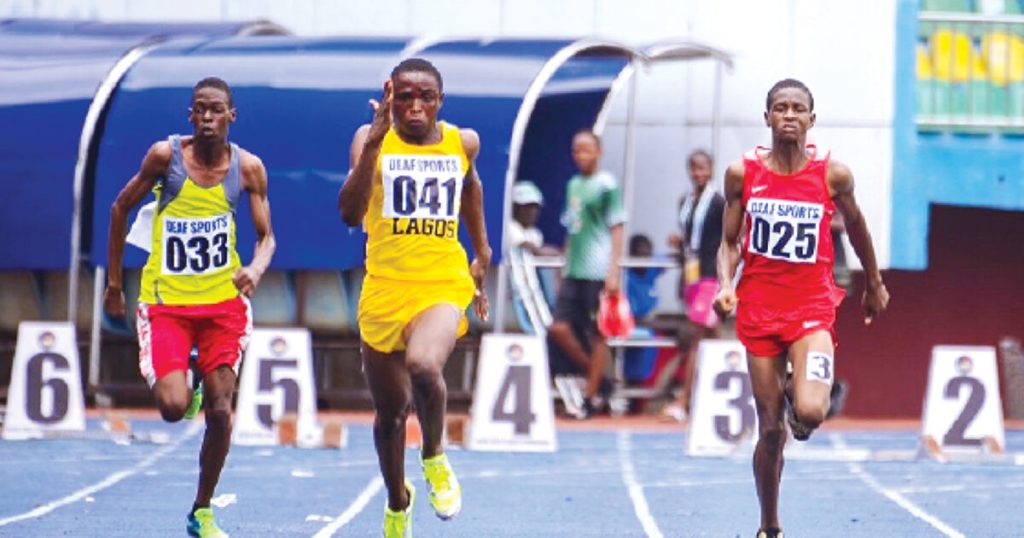The 9th National Youth Games, a prominent grassroots sporting event in Nigeria designed to showcase and nurture athletes aged 15 and under, has been marred by allegations of age cheating, casting a long shadow over the competition’s integrity and raising serious questions about the commitment to fair play and genuine youth development. Olympic champion Enefiok Udo-Obong, a two-time Olympic medalist and former Nigerian Olympic Committee board member, has been vocal in his criticism, highlighting the seemingly entrenched culture of circumventing regulations at the grassroots level. He asserts that several athletes participating in the Games are significantly older than the stipulated age limit, undermining the very purpose of the event. Udo-Obong’s concerns underscore a deep-seated problem that threatens to derail the development of young athletes and compromise the future of Nigerian sports.
Udo-Obong’s condemnation of the alleged malpractice extends to the complicity of some state officials, arguing that they actively support and facilitate the inclusion of overage athletes in pursuit of victory at all costs. This win-at-all-costs mentality, he argues, transforms the Games from a platform for nurturing young talent into a fiercely competitive arena where ethical considerations are sidelined. The former sprinter specifically pointed to the girls’ 100m race, where athletes from Delta and Edo states displayed exceptional speed, clocking times that he deemed suspiciously fast for their purported age category. He questioned the plausibility of 13- and 14-year-olds achieving such speeds and highlighted the recurring pattern of athletes previously disqualified from under-17 competitions for being overage reappearing in the under-15 National Youth Games. This cyclical pattern, according to Udo-Obong, exposes the systemic failures and lack of effective measures to prevent age manipulation.
Among the athletes singled out by Udo-Obong were Tejiri Ugoh and Faith Chukwuma, both of whom he alleges had faced prior disqualifications for age discrepancies. Despite these previous sanctions, both athletes competed in the Games, with Ugoh winning gold in the 100m final with a time of 11.75 seconds, while Chukwuma and Ufuoma Merit, both representing Delta State, secured silver and bronze respectively. These results further fueled Udo-Obong’s suspicions and highlighted the apparent ease with which athletes can circumvent age regulations, even after facing prior scrutiny. The recurring presence of allegedly overage athletes raises questions about the effectiveness of the screening process and casts doubt on the commitment of organizers to uphold the integrity of the competition.
In response to the mounting accusations, Patrick Abobi, Deputy Director at the National Sports Commission and chairman of the Games’ screening committee, refuted the claims of widespread malpractice. He defended the screening process, asserting that this year’s procedures were the most rigorous in the nine-year history of the competition. Abobi cited the relatively low number of disqualifications – fewer than 200 out of over 5,000 registered athletes – as evidence of the improved screening process compared to previous editions where over 400 athletes were disqualified. However, he acknowledged the inherent limitations of the existing system, which relies primarily on documentation like the National Identification Number and physical assessments, both of which can be manipulated. This reliance on easily falsifiable documents underscores the vulnerability of the system to exploitation and the need for more robust and reliable methods of age verification.
Abobi conceded that the current screening methods are not foolproof and admitted that determining the true age of athletes is challenging without access to more sophisticated technology. He placed the onus of accurate age reporting on parents, emphasizing that they are ultimately responsible for providing accurate information. While acknowledging the limitations of the current approach, Abobi stressed that the Games are primarily focused on talent discovery and development, not solely on winning medals. He reiterated the importance of nurturing young athletes and preparing them for future international competitions such as the Commonwealth Games, the All Africa Games, and the Olympics, rather than prioritizing immediate success at the expense of long-term development. This emphasis on development over immediate results underscores the stated objectives of the Games and highlights the potential damage caused by age cheating, which disrupts the intended pathway for young athletes.
Abobi further outlined potential reforms aimed at addressing the issue of age manipulation, including a review of the reward system for states. By restructuring the incentives, he hopes to discourage the unhealthy pursuit of medals at all costs and encourage a more genuine focus on athlete development. He believes that by properly aligning incentives, states will be less inclined to resort to shortcuts like fielding overage athletes and will instead prioritize the long-term growth and development of their young athletes. Abobi acknowledged that achieving a completely foolproof system will take time but expressed optimism that with continued effort and support, the existing loopholes can be effectively addressed. He maintained that significant progress has already been made and emphasized the importance of proper planning and adequate resources in strengthening the integrity of the Games. Despite the ongoing controversy, Abobi remains confident that the National Youth Games can fulfill its mandate of identifying and nurturing young talent, ultimately contributing to the future success of Nigerian sports.


